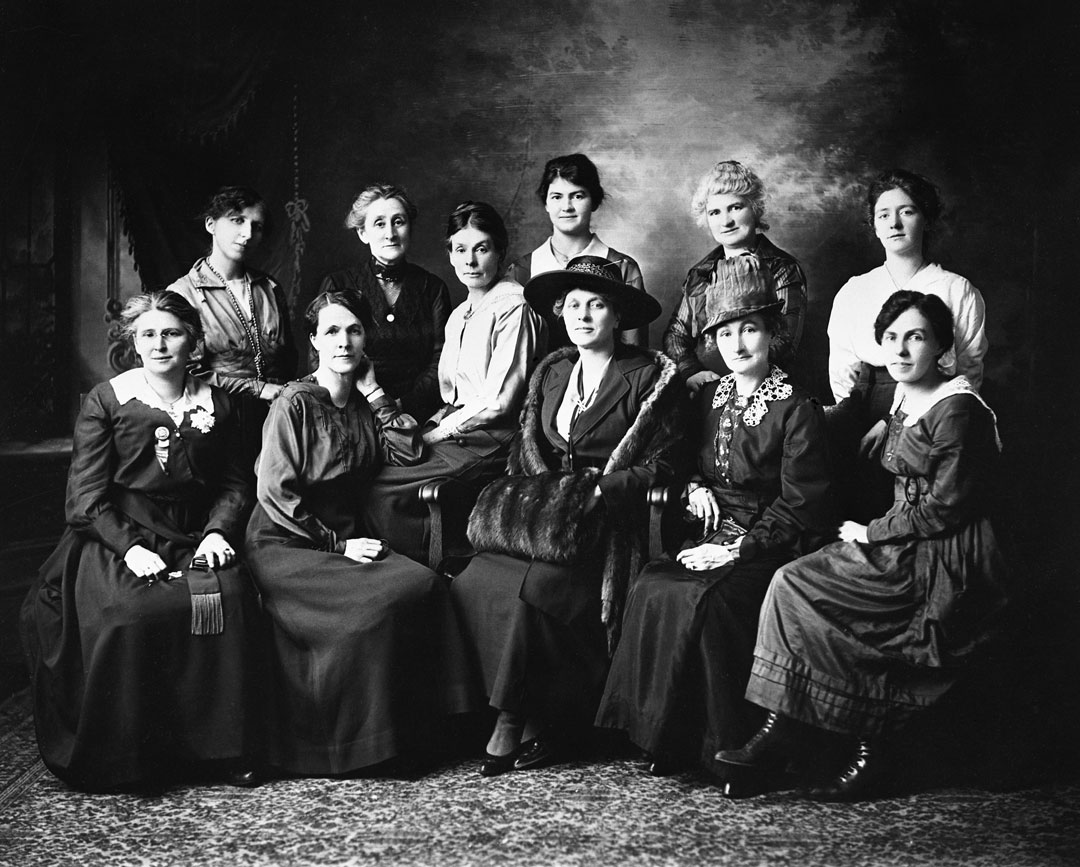AGAINST THE GRAIN
THE HISTORY OF ALBERTA’S UNITED FARM WOMEN
This board of directors for the United Farm Women of Alberta (UFWA) was leading an organization that was only about three years old when this photo was taken in 1919.
The UFWA was first established in 1915 as an auxiliary to the United Farmers of Alberta (UFA). But only a year later, it became a separate organization with its own constitution and direction.
The UFWA was initially led by Irene Parlby, who in 1921 became the first woman elected to the Alberta legislature. Parlby, who homesteaded with her husband Walter in Lacombe County, was also a member of the “Famous Five,” a group of influential women instrumental in having the Supreme Court of Canada recognize women as “persons” under the British North America Act in 1929.
Through its various efforts, the UFWA had a clear focus on “social welfare” and “betterment of rural life,” primarily for women and children, but also for Albertans in general. Various committees were formed to work on the legal status of women and children, co-operative marketing, farm safety and environmental concerns.
In a paper published by Athabasca University’s Nanci Langford, she noted, “issues such as property rights for farm women, reproductive rights, farm economics and marketing, stress in farm families, child care in rural areas, access to affordable medical care, rural depopulation, and loss of schools and services kept the organization lobbying and in advocacy activities for decades, and maintained its reputation as a respected voice for rural communities.”
One very controversial campaign by today’s standards was the UFWA’s endorsement of human sterilization and segregation during the First World War. The UFWA believed casualties during the war resulted in a loss of desirable genes, leading the organization to argue that these measures would prevent social problems created by the “unfit,” such as criminality and poverty.
The UFWA successfully lobbied the UFA government to enact the Sexual Sterilization Act in 1928, and it remained on the books until 1972.
The organization was renamed the Farm Women’s Union of Alberta (FWUA) in 1949. After the creation of Unifarm in 1970, the organization became the Women of Unifarm. That organization was instrumental in the creation of the Matrimonial Property Act (1979), which gave women equality in the division of property. Due to declining membership, the Women of Unifarm disbanded in 2000.







Comments